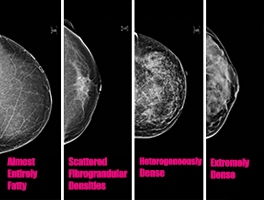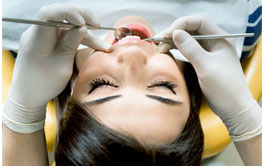
Love it or hate it, menopause is a normal part of aging. It comes with a laundry list of unpleasant symptoms, with hot flashes and hijacked hormones at the top. Let’s talk treatment.
The Whole Shebang
When the time comes, you’ll likely move through three different phases.
- Perimenopause: The word means menopause transition, and it typically starts in your 40s. Signs of perimenopause include unpredictable monthly cycles, crazy hormones, hot flashes, night sweats, insomnia and heavy menstrual bleeding. You may also get “brain fog,” or changes in memory, and put on a few pounds.
- Menopause: If you’ve missed your period for 12 straight months and you’re age 45-55 (average age is 51), it’s likely you’ve reached menopause. Your ovaries no longer release eggs, and for the next year or so, your estrogen levels will drop. While this lowers your risk for certain types of cancer, opens new tab, it also increases your risk for osteoporosis, opens new tab, a lower sex drive, drier and more wrinkle-prone skin, and tooth loss and gum disease.
- Postmenopause: You’ll be relieved to know that in the postmenopausal years, the hot flashes and night sweats go away and your energy returns. However, the risk for developing osteoporosis, opens new tab, heart disease, opens new tab and other serious health conditions remains high. Having an annual wellness checkup is as important as ever.
Your Treatment Options
Lifestyle Changes
Sometimes, all it takes to find relief is a few tweaks such as:
- Drinking cool liquids
- Keeping a fan at your work desk and bedside
- Limiting alcohol and caffeine intake
- Losing weight
- Lowering the air temperature
- Quitting smoking
- Using a frozen gel pack for a pillow
- Wearing layered, breathable clothing
Medication
If you’ve tried all of the above, but still struggle with life-disrupting symptoms, your doctor may recommend medication.
Hormone replacement therapy, better known as HRT, is a common treatment option. Your doctor may prescribe estrogen only or a combination of estrogen and progesterone. Estrogen comes in creams, patches, pills, lotions and vaginal rings. HRT comes with risks, and it isn’t for everyone. When talking with your doctor about the pros and cons, make sure to share your complete medical history, opens new tab. Having the big picture will help your doctor help you weigh the risks and benefits.
If HRT isn’t an option, take heart. Other medications, such as Brisdelle and Paroxetine, may help manage your symptoms, especially hot flashes. Similar to HRT, these medications aren’t for everyone. For example, if you take Tamoxifen to treat breast cancer, you can’t Brisdelle because it could decrease the effectiveness of Tamoxifen.
That said, if you do take Tamoxifen, medications such as clonidine, citalopram, escitalopram, venlafaxine and gabapentin are safe and may bring you some hot flash relief.
While you can’t avoid menopause, you don’t have to suffer. Talk with your gynecologist or primary care doctor, opens new tab about the best way to find sweet relief when your menopause symptoms become too hot to handle.
Related Reading
Hot Flash Foods, opens new tab
Menopause Basics, opens new tab
Related Articles

November 7, 2024
10000 Steps Good Enough
How many steps did you log today? It’s a popular question, and the gold standard answer is 10,000. Yet, depending on your health goals, you may need to pick up the pace.

June 1, 2019
5 Day Meal Prep
Who says eating healthy has to be difficult? One of our Registered Dietitians shows us how easy it can be to prep lunches for a busy week.

June 1, 2019
5 Foods With Health Benefits
Dark ChocolateBoost your mood and your memory (think antioxidants) by savoring dark chocolate. It may also help your heart health. Just 1 oz. is all it takes...

December 9, 2019
5 Free Indulgences
Are you ready for the hubbub of the holidays? The season’s festivities are always fun, but they can also wear you down. If your holiday spirit needs rechargi...

June 1, 2019
5 Minutes to a Happier You
Feeling stressed, angry or anxious? Head to the great outdoors. A new study has found that a five-minute walk can work wonders for your mood.The more natural...

July 27, 2022
5 Must Have Nutrients
Vitamins and minerals do a body good, but who has time to figure out which foods offer what benefits? This short list of five essential nutrients, opens new ...


